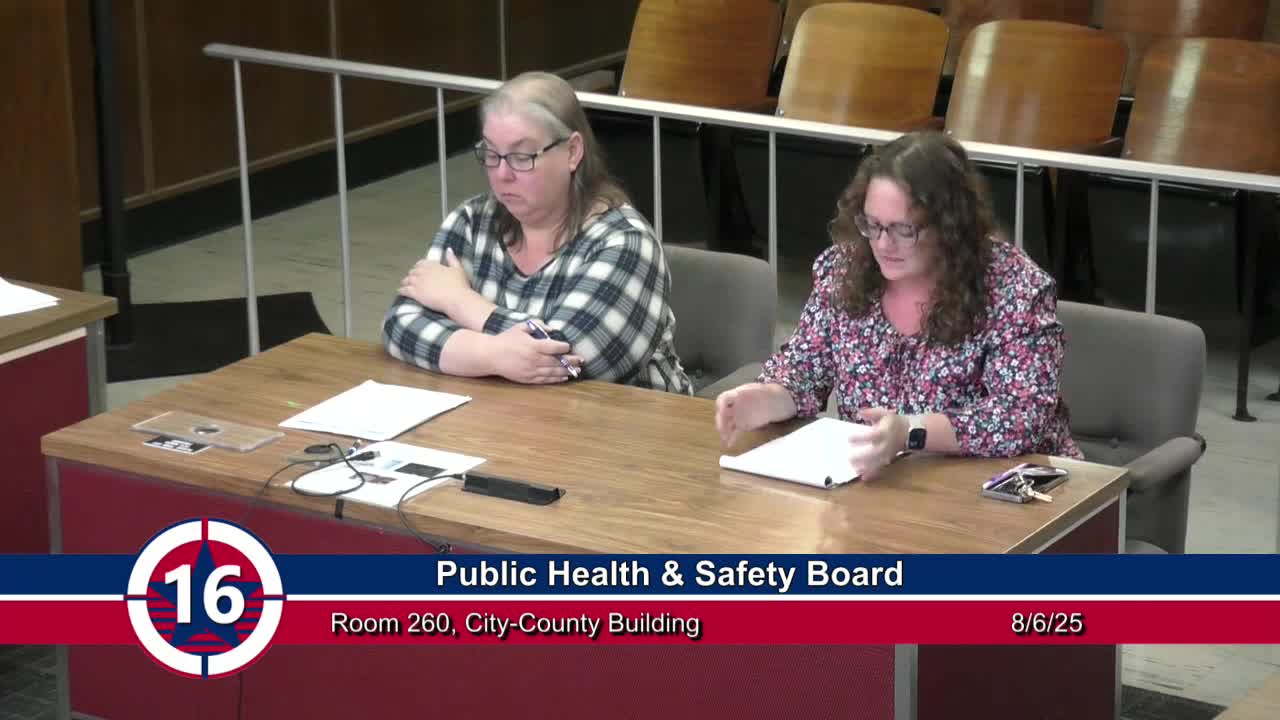City Council Approves $146K Mental Health Program for Nonfatal Shooting Victims
August 06, 2025 | Indianapolis City, Marion County, Indiana
This article was created by AI summarizing key points discussed. AI makes mistakes, so for full details and context, please refer to the video of the full meeting. Please report any errors so we can fix them. Report an error »

The City Council of Indianapolis has taken a significant step towards addressing community violence and its aftermath by approving a contract with IU Methodist Health Hospital. This contract, valued at $146,250 over three years, is part of a continuation of the American Rescue Plan Act (ARPA) grant aimed at supporting a nonfatal shooting advocate program. The funding will provide approximately $50,000 annually to enhance mental health services for individuals affected by nonfatal shootings.
During the recent Board of Public Health and Safety meeting, council members discussed the importance of this initiative, which seeks to offer comprehensive support to victims and their families. The program will not only provide immediate medical care but also therapeutic services to help individuals cope with trauma. This holistic approach aims to address the mental health needs of those impacted by violence, recognizing that untreated trauma can lead to further cycles of violence and substance abuse.
The selection of IU Methodist Health as a partner stems from their involvement in the initial grant proposal development, ensuring that they are well-equipped to deliver the necessary services. The program will assess the needs of individuals involved in nonfatal shooting incidents and connect them with appropriate resources, including mental health care and other community support services.
Council members expressed a desire to understand how this treatment program fits within the broader context of crime prevention. The response highlighted that the grant encompasses a community violence intervention strategy, emphasizing the need for mental health treatment as a critical component in preventing future crimes. By addressing the trauma associated with violence, the program aims to break the cycle of violence in neighborhoods that are often plagued by repeated exposure to such incidents.
As the city moves forward with this initiative, it reflects a commitment to not only respond to violence but also to foster healing and resilience within the community. The council's decision underscores the importance of integrating mental health support into public safety strategies, ultimately aiming to create a safer and healthier environment for all residents.
During the recent Board of Public Health and Safety meeting, council members discussed the importance of this initiative, which seeks to offer comprehensive support to victims and their families. The program will not only provide immediate medical care but also therapeutic services to help individuals cope with trauma. This holistic approach aims to address the mental health needs of those impacted by violence, recognizing that untreated trauma can lead to further cycles of violence and substance abuse.
The selection of IU Methodist Health as a partner stems from their involvement in the initial grant proposal development, ensuring that they are well-equipped to deliver the necessary services. The program will assess the needs of individuals involved in nonfatal shooting incidents and connect them with appropriate resources, including mental health care and other community support services.
Council members expressed a desire to understand how this treatment program fits within the broader context of crime prevention. The response highlighted that the grant encompasses a community violence intervention strategy, emphasizing the need for mental health treatment as a critical component in preventing future crimes. By addressing the trauma associated with violence, the program aims to break the cycle of violence in neighborhoods that are often plagued by repeated exposure to such incidents.
As the city moves forward with this initiative, it reflects a commitment to not only respond to violence but also to foster healing and resilience within the community. The council's decision underscores the importance of integrating mental health support into public safety strategies, ultimately aiming to create a safer and healthier environment for all residents.
View full meeting
This article is based on a recent meeting—watch the full video and explore the complete transcript for deeper insights into the discussion.
View full meeting
